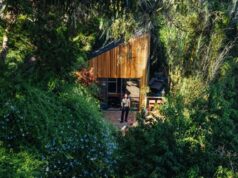
NATIONAL REPORT—Weddings are always good business for hotels, and holding an eco-friendly event is the latest trend. This environmentally-conscious wedding/event “how-to” guide will help “green minded” facilities take advantage of this significant opportunity.
Buy Local, Organic Food
Buy seasonal and local foods, organic if possible. Local food is fresher and tastier, and requires less processing, packaging, refrigeration, transportation and marketing. To find local food producers, including farmers’ markets and community-sponsored agriculture, try networking sites like Local Harvest (www.localharvest.org) or GreenLeaf Market (www.greenleafmarket.com).
Conventional production of meat requires huge amounts of resources and contributes greatly to pollution of rural areas. Choose meat certified as organic and/or “humanely raised”. Choose only seafood that’s not under threat of extinction due to over-fishing. For guidance, look to the seafood watch list.
The wedding cake can be eco-conscious. Some bakeries always work with as many organic and locally grown ingredients as possible; ask any good wedding cake shop to prepare the cake with organic ingredients.
Consider serving a sit-down or family-style dinner as so much food goes to waste with a buffet-style dinner.
For real innovation, do without any containers. For example, yellow pepper and arugula soup serves up beautifully in cucumber cups instead of bowls.
Seek unpackaged or minimally packaged foods, buy in bulk and container it yourself, or pick brands that use bio-based plastic packing. Recycle or reuse any packaging used.
Ensure unused food is sent to a food bank, community meal program or composting facility. Collect the leftover partial bottles of water from meeting rooms and use the water for hotel plants.
Choose Certified Organic Wines
For the best certified organic wines from around the world, check out www.organicvintners.com. Explore local vineyards, even if not organic. Organic spirits are increasingly available; try Triple 8 Distillery (www.ciscobrewers.com) and Maison Jomere (www.maisonjomere.com). Vodkas to consider include 360 Vodka (www.vodka360.com) and Square One (www.squareonevodka.com).
For 100 percent pure and organic agave tequila, there’s El Perdido (www.bevmo.com). Such fine alcohols are no doubt excellent taken neat, but if mixers are desired, try Modmix’s (www.modmixbeverages.com) USDA-certified organic line of mixers.
Organic, Fair Trade coffee is easily sourced; try Equal Exchange (www.equalexchange.com) and Jim’s Organic Coffee (www.jimsorganiccoffee.com).
Remember to recycle the bottles.
The Decorations
Candlelight is more eco-friendly than electric lights; make sure they’re beeswax or soy candles instead of standard candles made from petroleum with leaded wicks, which release more smoke and chemicals into the air.
If electricity is the only choice, nothing beats LED for color and environmental friendliness. Programmable color changing, underwater applications, tiles, strings, ropes and tubes are all easier with LEDs (www.environmentallights.com). For the newest LED “warm white” bulbs, look at www.inirgee.com.
Choose balloons made of 100 percent natural biodegradable latex, produced from the milky sap of the rubber tree. Latex is a natural substance that breaks down both in sunlight and water. (Latex balloons will biodegrade at about the same rate as a leaf from an oak tree.)
Ecofetti is the perfect wedding confetti for a fun bridal toss with no cleanup worries because it is biodegradable and water soluble (www.ecoparti.com).
The Flowers
Flowers are the greenest when they’re local. Ask a local floral designer to get local flowers and request flowers that haven’t been heavily treated with pesticides (organic is ideal).
In season, try the local farmers’ market. Otherwise, California Organic Flowers (www.californiaorganicflowers.com) and Organic Bouquet (www.organicbouquet.com) ship nationwide and sell flowers certified by Veriflora (www.veriflora.com), a sustainability certification program for fresh cut flowers and potted plants.
Choose eco-friendly containers, like recycled glass or bamboo, or the newest option, a paper “blumebox” (www.blumebox.com).
Skip flowers altogether and choose vases filled with water and candles, or bowls of organic fruit or pots of organic herbs. After the wedding, donate fruit centerpieces and floral arrangements. Floral arrangements used in the ceremony can be reused for the reception.

On the Table
It’s always greenest to use washable linens, napkins, cutlery and dinnerware; simply renting from a conventional supply store ensures that things will be reused.
Fire & Light hand-poured glass tableware is made of recycled glass (www.fireandlight.com); for cheaper recycled glass tableware, look into www.greenfeet.com. Greenfeet also produces a good range of recycled/sustainable/disposable/renewable source tableware.
Bamboo plates and utensils are light and unbreakable (www.bambuhome.com) and intended for one use, a good alternative to disposables.
Buy recycled disposables, such as Seventh Generation’s paper plates, which are made from 100 percent recycled paper and whitened without chlorine bleach (www.seventhgeneration.com).
Consider biodegradable and compostable utensils, like those from Nat-Ur (www.nat-urstore.com). Set up on-site recycling stations and compost if possible.
Set the table with linens made from organic cotton, silk or recycled materials. Check out www.greensage.com for “color-grown” organic linens grown and made in the United States.
The Transportation
Build a wedding website with all needed information: events, activities and directions. Direct the guests to use the website to coordinate carpooling with family and friends.
Locate the most eco-friendly livery service in the area, like Boston’s PlanetTran (www.planettran.com).
Enterprise/National/Alamo rental cars have an “environmental platform” (www.keystogreen.com). Almost any car rental stocks fuel-saving hybrid cars like the Toyota Prius and Honda Civic.
Call a taxi. Many otherwise ordinary taxi companies offer hybrid vehicles to hail.
If driving and flying must be done, consider purchasing renewable energy certificates to offset travel (www.drivinggreen.com or www.nativeenergy.com).
Pedicabs are a safe and environmentally friendly form of transportation. Or let the beast of burden do the work and hire a horse-and-carriage or two.
Other Considerations
Operate a venue openly committed to improving the environment:
• Incorporate design features that allow more natural light.
• Add programmable control systems for heating, ventilation, air-conditioning and lighting.
• Use solar panels and fans.
• A “green roof” provides extra insulation and energy efficiency (www.greenroofs.com).
• Use recycled carpet or carpet tiles (www.flor.com) to save enormous waste from landfills.
• Decorate with eco-friendly paints and polishes (www.sherwin-williams.com) and clean with environmentally-safe cleaning products.
• Seek certification from the Green Restaurant Assn. (www.gra.org)
• Print promotional brochures on recycled paper, and/or have it all online for paper-free publicity.
• Offset energy use; start with Constellation NewEnergy (www.newenergy.com).
Dianna Dixon can be contacted at dianna@lakeairsystems.org.







